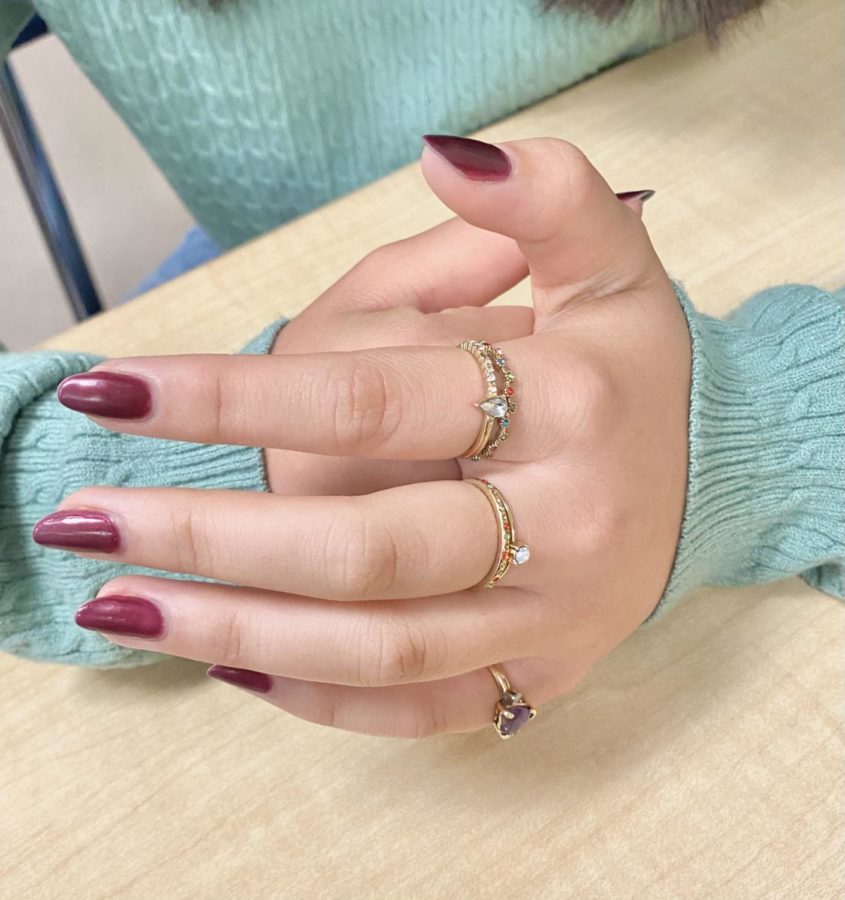Cracking Myths and Joints
What actually happens when you crack your knuckles or other joints (beyond annoying people)?
June 7, 2022
Pop! Crack! There are no words that can describe the satisfying sound and feeling of cracking your own knuckles and joints. Cracking your bones, as many like to inaccurately call it, is a growing addiction where once you start, it gets impossible to stop. Technically, every time you hear your knuckles, neck, back, or anywhere else crack, it is not your bones; it is your joints that are doing the cracking. Although some may refer to cracking your joints as cracking your bones, cracking your bones would be highly painful and refers to the actual breaking or fracturing of your bones (major ouch). However, although making that cracking and popping sound with your joints might be extremely satisfying, it is probably equally annoying to those around you.
Growing up, many parents tell their children not to crack their knuckles. Adults scare us into thinking that frequently cracking your knuckles or other joints will make those joints larger or give you arthritis (the inflammation of joints causing pain and stiffness) (Mayo Clinic). In reality, there is no evidence that cracking your joints will do any damage over time, proving that this is just a myth. In fact, there is actual evidence that cracking your knuckles does not negatively affect bones and joints in the long run. This was proven through experiments where people regularly cracked the knuckles of one hand but not the other, and decades later, found no difference in arthritis between the x-rays of both hands (health.harvard.edu). Perhaps, adults just don’t want to be annoyed with the sound of kids constantly cracking their joints. Sharing his own experience, Alex Ho (10) states that “my mom used to tell me that if I cracked my knuckles, the space in between my fingers would increase, which made me hesitant to do it when I was younger. [Now] I crack my knuckles 1-2 times per class period, not to annoy people but to make my fingers feel looser and less tense.” Alex also claims that he does not necessarily crack his knuckles for the satisfying sound but more for the feeling in his fingers.
The sound of cracking your joints is actually caused by the popping of nitrogen bubbles located in between your bones and joints. Besides the sound maybe bothering others, cracking your joints should not cause any pain or discomfort. If it starts to become painful, it is best to seek help from a chiropractor or doctor. Although it is very rare, there is a slim possibility that you might injure ligaments around the joint or pull your finger out of the joint if you pull hard enough (this is not easy to do but don’t take this as a challenge) (healthline.com). As for benefits, many have argued that cracking joints brings relief, which is mostly the result of the stretching that happens simultaneously (piedmont.com).
Studies have shown that around 54% of people crack their knuckles, whether it be for the sound, for how it feels, when stressed, when nervous, or to annoy others. This habit can be satisfying like popping bubble wrap except you don’t always have bubble wrap handy, but luckily your joints travel with you and gives the same sound of satisfaction. However, as you may have noticed, you cannot crack the same joint twice right away. This is because it takes time for the nitrogen bubbles to form again. It takes around 25 to 30 minutes before your joints can pop again.
Cracking joints in your neck and back have differences in risk compared to cracking your knuckles. When it comes to the neck, there are risks of increased pain, headaches, and pinched nerves. It is not recommended to crack the joints in your neck frequently and it is better to be done by a professional. As for back joints, there is no harm if the cracking is done carefully and occasionally if it is done with slow stretches rather than rapid, forceful, twisting movements (amp.smh.com.au).
So there you have it, pop and crack away. If anyone tells you that cracking your joints is harmful, let them know that that is just a myth. On the other hand, if you are fed up with someone constantly making those cracking sounds, you should probably come up with more valid reasoning.





































